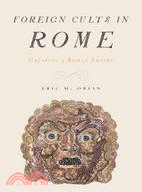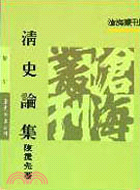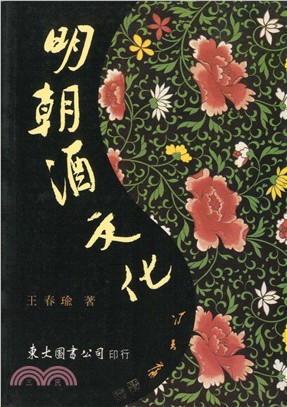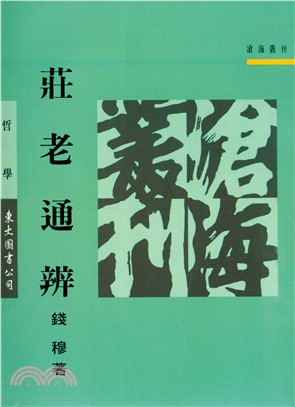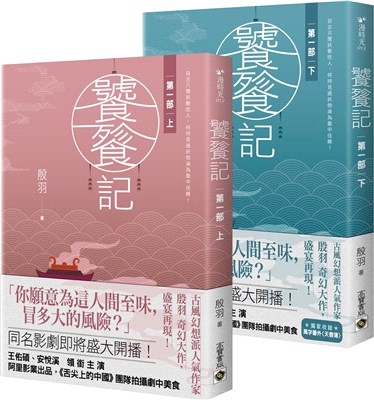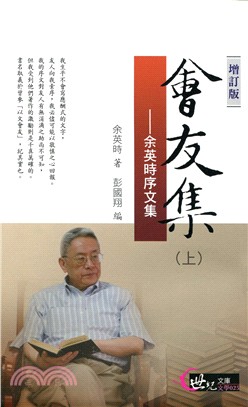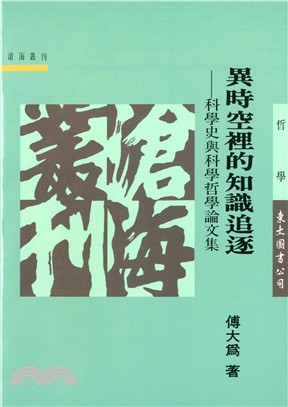Foreign Cults in Rome:Creating a Roman Empire
商品資訊
ISBN13:9780199731558
出版社:Oxford Univ Press USA
作者:Eric M. Orlin
出版日:2010/08/27
裝訂:平裝
定價
:NT$ 4940 元優惠價
:90 折 4446 元
若需訂購本書,請電洽客服 02-25006600[分機130、131]。
商品簡介
作者簡介
相關商品
商品簡介
"In this timely and important book, Orlin explores a central conundrum in republican history through the lens of religion, namely how the Romans managed to construct a distinctive ethnic identity for themselves while incorporating masses of non-Romans into the citizen-body. He shows how decisions about which foreign gods to admit into the Republic's cult and on what terms erected clear yet permeable boundaries that defined Romanness and at the same time helped to extend Rome's sway over Italy. This work is a must read for anyone interested in Roman ethnogenesis and the foundations of the Republic's imperium."---Nathan Rosenstein, The Ohio State University
"This is a well-researched and well-written book on a very important topic. Orlin argues that while the boundaries of `Romanness' in religion (and, one can assume, much else) consistently expanded during the Republic, the Roman elite simultaneously took great care that the expanded boundaries were firm and clear. In terms of foreign cults introduced at Rome, Orlin convincingly proves his case."---Arthur Eckstein, University of Maryland, College Park
Religion is a Particularly Rich Field Within Which to Study Roman Self-Definition, for the Romans considered themselves to be the most religious of all peoples and ascribed their imperial success to their religiosity. Building on the observation that the Romans were remarkably open to outside influences, Foreign Cults in Rome explores how the Romans installed foreign religious elements as part of their own religious system and how that affected their notions of what it meant to be Roman. The inclusion of so many foreign elements posed difficulties for defining a sense of Romanness at the very moment when a territorial definition was becoming obsolete. Using models drawn from anthropology, this book demonstrates that Roman religious activity beginning in the middle Republic (early third century B.C.E.) contributed to redrawing the boundaries of Romanness. The methods by which the Romans absorbed cults and priests and their development of practices in regard to expiations and the celebration of ludi allowed them to recreate a clear sense of identity, one that could include the peoples they had conquered. While this identity faced further challenges during the civil wars of the Late Republic, the book suggests that Roman openness remained a vital part of their religious behavior during this time. The volume concludes with a brief look at the reforms of the first emperor Augustus, whose activity can be understood in light of Republican activity, and whose actions laid the foundation for further adaptation under the Empire.
"This is a well-researched and well-written book on a very important topic. Orlin argues that while the boundaries of `Romanness' in religion (and, one can assume, much else) consistently expanded during the Republic, the Roman elite simultaneously took great care that the expanded boundaries were firm and clear. In terms of foreign cults introduced at Rome, Orlin convincingly proves his case."---Arthur Eckstein, University of Maryland, College Park
Religion is a Particularly Rich Field Within Which to Study Roman Self-Definition, for the Romans considered themselves to be the most religious of all peoples and ascribed their imperial success to their religiosity. Building on the observation that the Romans were remarkably open to outside influences, Foreign Cults in Rome explores how the Romans installed foreign religious elements as part of their own religious system and how that affected their notions of what it meant to be Roman. The inclusion of so many foreign elements posed difficulties for defining a sense of Romanness at the very moment when a territorial definition was becoming obsolete. Using models drawn from anthropology, this book demonstrates that Roman religious activity beginning in the middle Republic (early third century B.C.E.) contributed to redrawing the boundaries of Romanness. The methods by which the Romans absorbed cults and priests and their development of practices in regard to expiations and the celebration of ludi allowed them to recreate a clear sense of identity, one that could include the peoples they had conquered. While this identity faced further challenges during the civil wars of the Late Republic, the book suggests that Roman openness remained a vital part of their religious behavior during this time. The volume concludes with a brief look at the reforms of the first emperor Augustus, whose activity can be understood in light of Republican activity, and whose actions laid the foundation for further adaptation under the Empire.
作者簡介
Eric Orlin is Professor of Classics at the University of Puget Sound.
主題書展
更多
主題書展
更多書展今日66折
您曾經瀏覽過的商品
購物須知
外文書商品之書封,為出版社提供之樣本。實際出貨商品,以出版社所提供之現有版本為主。部份書籍,因出版社供應狀況特殊,匯率將依實際狀況做調整。
無庫存之商品,在您完成訂單程序之後,將以空運的方式為你下單調貨。為了縮短等待的時間,建議您將外文書與其他商品分開下單,以獲得最快的取貨速度,平均調貨時間為1~2個月。
為了保護您的權益,「三民網路書店」提供會員七日商品鑑賞期(收到商品為起始日)。
若要辦理退貨,請在商品鑑賞期內寄回,且商品必須是全新狀態與完整包裝(商品、附件、發票、隨貨贈品等)否則恕不接受退貨。



